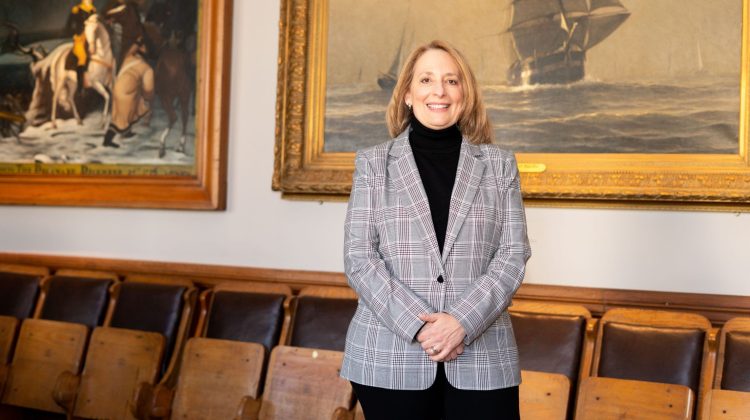What is a “news desert”? Where can they be found, and what can be done to minimize them?
Legislators, reporters, and citizens gathered to discuss these questions in a webinar attended by state Sen. Brendan Crighton (D-Lynn) and state Rep. Lori Ehrlich (D-Marblehead), both of whom are responsible for pitching a commission on local press-related research in January ― which Ehrlich announced will begin gathering information in the late fall.
“About 10 years ago, I noticed the papers I love reading were drying up and slimming down,” Ehrlich said. “Maybe there was something to learn and study and a conversation to have that would benefit the Massachusetts journalistic ecosystem from the Berkshires to Boston.”
During the webinar, held on Sept. 27, Ehrlich said that a group of experts studying dwindling newsroom activity across the state will begin their data gathering in the late fall of this year and will have a full report ready in August of 2022. She added that she hopes to find new ways to spur the growth of local news organizations in Massachusetts.
The Marblehead Democrats, who hosted the webinar, also invited Dan Kennedy, a professor of journalism at Northeastern University and a veteran journalist, to talk about the commission and about why it is necessary at this time.
Kennedy explained that a “news desert” is when an area does not have a newspaper ― daily or otherwise ― reporting on local issues. While Massachusetts doesn’t have news deserts, Kennedy said, he pointed out examples of local newspapers having only one full-time reporter, or relying entirely on freelance work.
“Plenty of places are underserved; 2,100 papers have closed across the country over the last 15 years,” Kennedy said. “It doesn’t have to be this way.”
Kennedy added that local news organizations are important for a number of reasons, not just because they cover issues important to small communities, but also because these publications are seen as more trustworthy.
“Local news is more trusted in a time of polarization,” Kennedy said. “People are fighting all the time over national issues. Local news tends to bring people together.”
In January, Ehrlich and Crighton presented a bill on economic development. One of the things they asked for in the bill was to set up a press commission to study trends with local newspapers.
Since the bill passed in January, other states, including New Jersey and Illinois, have made similar commissions. The commission in Massachusetts is being led by Ellen Clegg, a previous editor of the editorial pages at the Boston Globe, and researchers are being recruited from different journalistic agencies in Boston and across the state.
“My colleagues understand the important works of journalism and the symbiotic relationship between government and journalism,” Ehrlich said.

